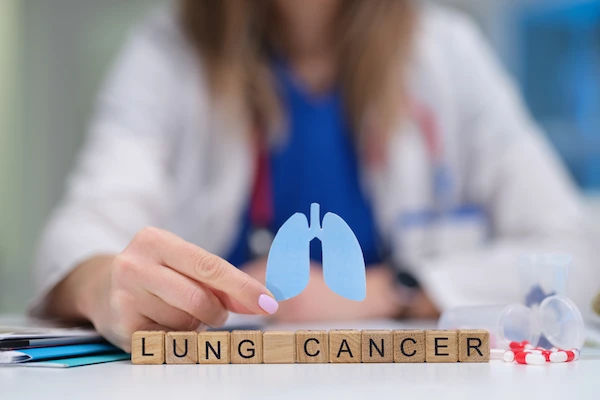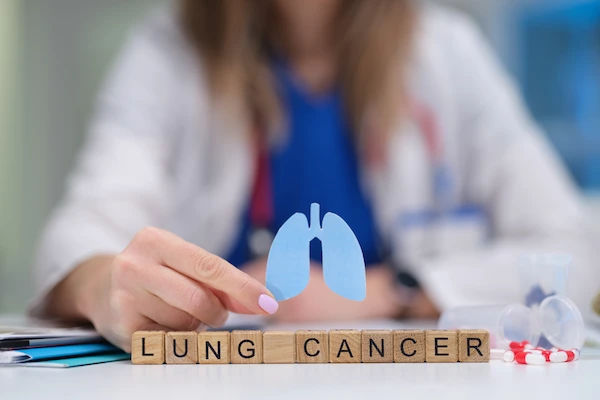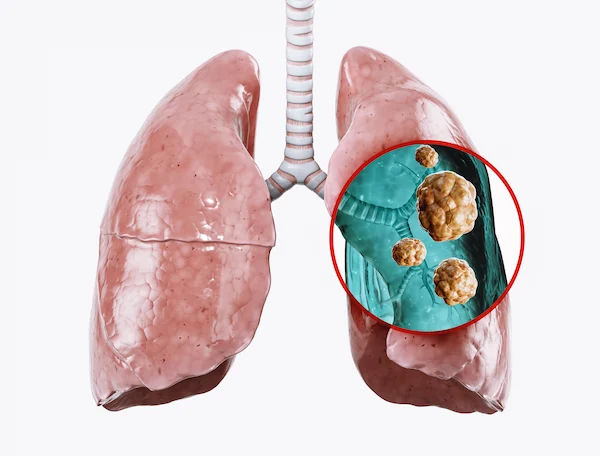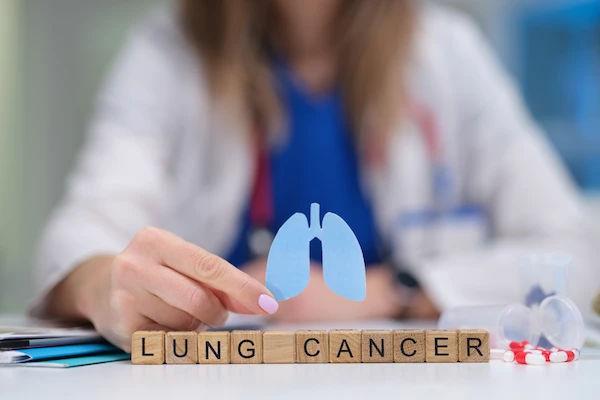Understanding Lung Cancer Stages 1-4
Learn about lung cancer stages 1 to 4, their symptoms, causes, treatments, and outlook. Get guidance on managing the disease and when to seek medical help.

Written by Dr. Dhankecha Mayank Dineshbhai
Reviewed by Dr. Md Yusuf Shareef MBBS
Last updated on 22nd Aug, 2025

Lung cancer is a serious health condition that affects millions of people worldwide. If you or a loved one has been diagnosed with lung cancer, understanding the different stages can help you make informed decisions about treatment and care. This article will explain the four stages of lung cancer in simple terms, including symptoms, causes, and ways to manage the condition.
What Are the Stages of Lung Cancer?
Lung cancer is categorised into four main stages (1 to 4), based on the size of the tumour, its location, and whether it has spread to other parts of the body. Knowing the stage helps doctors determine the best treatment plan.
Stage 1 Lung Cancer (Early Stage)
- Description: The cancer is small and confined to the lung. It has not spread to lymph nodes or other organs.
- Symptoms: Often, there are no noticeable symptoms. Some people may experience a mild cough, shortness of breath, or fatigue.
- Treatment Options: Surgery to remove the tumour is the most common treatment. Radiation or chemotherapy may be recommended in some cases.
- Outlook: Early detection improves survival rates significantly. Many patients with Stage 1 lung cancer can be treated successfully.
Stage 2 Lung Cancer (Locally Advanced)
- Description: The tumour is larger and may have spread to nearby lymph nodes, but not to distant organs.
- Symptoms: Persistent cough, coughing up blood, chest pain, wheezing, or frequent lung infections.
- Treatment Options: Surgery, chemotherapy, and radiation therapy are often combined for better results.
- Outlook: While more advanced than Stage 1, treatment can still be effective, especially if caught early.
Stage 3 Lung Cancer (Advanced but Localised)
- Description: The cancer has spread to lymph nodes in the chest or nearby structures like the heart or windpipe but has not reached distant organs.
- Symptoms: Severe coughing, difficulty breathing, unexplained weight loss, fatigue, and chest discomfort.
- Treatment Options: A combination of chemotherapy, radiation, immunotherapy, and sometimes surgery is used.
- Outlook: Treatment focuses on controlling the disease and improving quality of life. Some patients respond well to therapy.
Stage 4 Lung Cancer (Metastatic)
- Description: The cancer has spread to other parts of the body, such as the brain, liver, or bones.
- Symptoms: Severe fatigue, bone pain, headaches (if spread to the brain), jaundice (if spread to the liver), and difficulty breathing.
- Treatment Options: Focuses on managing symptoms and slowing progression. Treatments include targeted therapy, immunotherapy, chemotherapy, and palliative care.
- Outlook: While Stage 4 is not usually curable, treatments can help prolong life and improve comfort
Consult a TopGeneral Practitioner for the best advice
What Causes Lung Cancer?
The primary cause of lung cancer is smoking (including secondhand smoke). Other risk factors include:
- Exposure to radon gas, asbestos, or air pollution
- Family history of lung cancer
- Previous radiation therapy to the chest
How Can You Manage Lung Cancer?
While treatment depends on the stage, lifestyle changes can help improve overall health:
- Quit Smoking: If you smoke, stopping immediately can improve treatment effectiveness.
- Healthy Diet: Eat nutrient-rich foods like fruits, vegetables, and lean proteins to strengthen immunity.
- Exercise: Gentle activities like walking or yoga can help maintain strength and reduce fatigue.
- Regular Check-ups: Follow-up tests and scans are crucial to monitor progress.
When to See a Doctor
If you experience persistent symptoms like a chronic cough, chest pain, or unexplained weight loss, consult a doctor immediately. Early detection can make a significant difference in treatment success.
Need Help?
If you or someone you know is concerned about lung cancer, Apollo 24|7 offers expert consultations and diagnostic tests. You can easily book an appointment online for personalised care.
Final Thoughts
Understanding lung cancer stages helps in making informed decisions about treatment and care. While a diagnosis can be overwhelming, advancements in medicine provide hope for better management and improved quality of life. Stay proactive, follow medical advice, and seek support from loved ones and healthcare professionals.
Consult a TopGeneral Practitioner for the best advice
Consult a TopGeneral Practitioner for the best advice

Dr. Mainak Baksi
General Practitioner
13 Years • MBBS , MD (MPH)
Howrah
Mainak Baksi Clinic, Howrah
(50+ Patients)

Dr Suseela
General Physician
5 Years • MBBS
Bengaluru
Apollo Medical Center, Marathahalli, Bengaluru

Dr. Rajib Ghose
General Practitioner
25 Years • MBBS
East Midnapore
VIVEKANANDA SEBA SADAN, East Midnapore
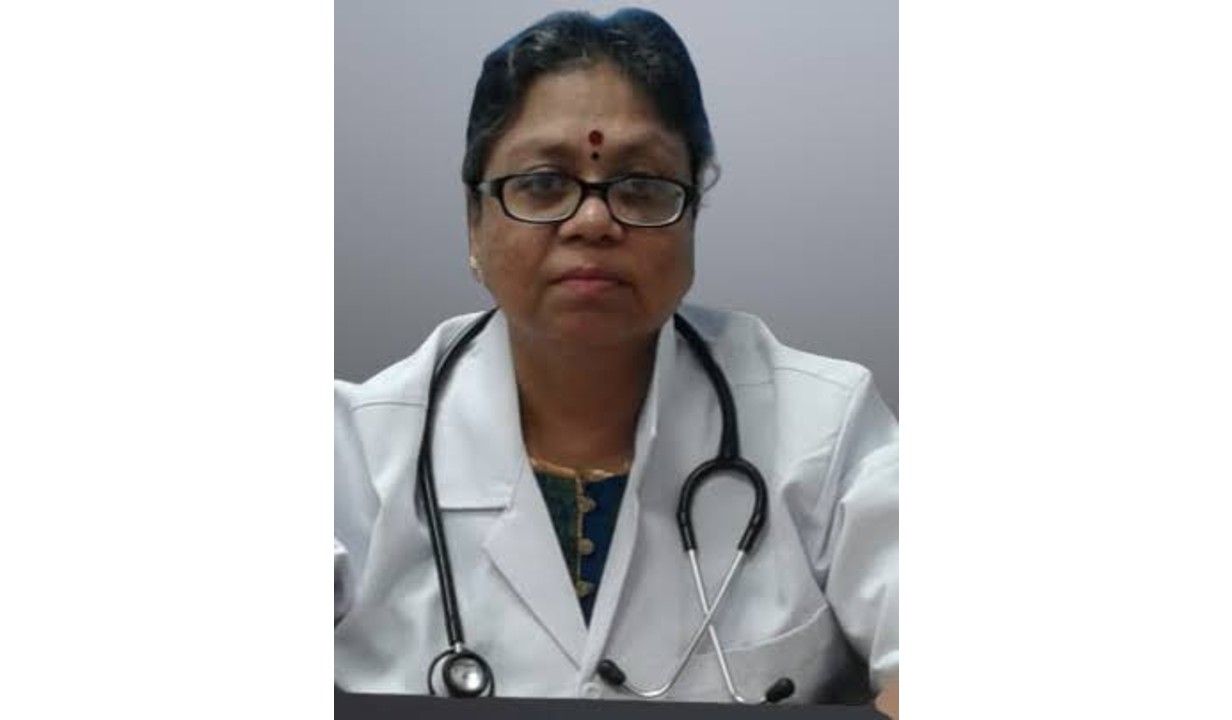
Dr. Bulbul Biswas
General Practitioner
35 Years • MBBS, Diploma in Maternity and child welfare
Kolkata
HERSTEL CARE CLINIC, Kolkata

Dr. Mary Susan K S
General Physician/ Internal Medicine Specialist
13 Years • MBBS, MD INTERNAL MEDICINE
Bengaluru
Apollo Clinic, Sarjapur Road, Bengaluru
Consult a TopGeneral Practitioner for the best advice

Dr. Mainak Baksi
General Practitioner
13 Years • MBBS , MD (MPH)
Howrah
Mainak Baksi Clinic, Howrah
(50+ Patients)

Dr Suseela
General Physician
5 Years • MBBS
Bengaluru
Apollo Medical Center, Marathahalli, Bengaluru

Dr. Rajib Ghose
General Practitioner
25 Years • MBBS
East Midnapore
VIVEKANANDA SEBA SADAN, East Midnapore

Dr. Bulbul Biswas
General Practitioner
35 Years • MBBS, Diploma in Maternity and child welfare
Kolkata
HERSTEL CARE CLINIC, Kolkata

Dr. Mary Susan K S
General Physician/ Internal Medicine Specialist
13 Years • MBBS, MD INTERNAL MEDICINE
Bengaluru
Apollo Clinic, Sarjapur Road, Bengaluru
